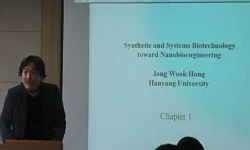Background and Objectives: In breast cancer, Her-2/neu amplification/overexpression predicts a poor clinical outcome and an enhanced survival benefit is rEported with the Her-2/neu targeted therapy. The purpose of this study was to establish a sensiti...
http://chineseinput.net/에서 pinyin(병음)방식으로 중국어를 변환할 수 있습니다.
변환된 중국어를 복사하여 사용하시면 됩니다.
- 中文 을 입력하시려면 zhongwen을 입력하시고 space를누르시면됩니다.
- 北京 을 입력하시려면 beijing을 입력하시고 space를 누르시면 됩니다.
유방암에서 Her-2/neu의 평가방법과 임상적 의미 = Evaluation and Clinical Significance of Her-2/neu in Breast Cancer
한글로보기https://www.riss.kr/link?id=A75165106
- 저자
- 발행기관
- 학술지명
- 권호사항
-
발행연도
2006
-
작성언어
Korean
- 주제어
-
KDC
510
-
자료형태
학술저널
-
수록면
57-65(9쪽)
- 제공처
- 소장기관
-
0
상세조회 -
0
다운로드
부가정보
다국어 초록 (Multilingual Abstract)
Background and Objectives: In breast cancer, Her-2/neu amplification/overexpression predicts a poor clinical outcome and an enhanced survival benefit is rEported with the Her-2/neu targeted therapy. The purpose of this study was to establish a sensitive and specific method for Her-2/neu testing. We compared immunohistochemistry (IHC) detection of Her-2/neu overexpression with differential polymerase chain reaction (PCR) to assess gene amplification of Her-2/neu in breast carcinoma. Also we evaluated the prognostic values of Her-2/neu amplification/overexpression. Materials and Method: We have studied Her-2/neu amplification/ overexpression in 163 cases of invasive ductal carcinoma of breast using paraffin-embedded tissue. The evaluation of positivity for IHC was ≥10% moderate or strong complete membranous staining. Tumors were positive for gene amplification if the ratio of Her-2/neu gene to control gene was ≥2. Results: The overexpression of Her-2/neu was detected in 39 (23.9%) cases. The amplification of Her-2/neu was detected in 37 (22.7%) cases. Both methods were positive in 21.5% of cases and negative in 74.8% of cases. There was 96.3% concordance between the two methods. The sensitivity of IHC as compared with PCR was 94.6% and the specificity 96.8%. Positivity of Her-2/neu was significantly associated with node positivity and large tumor size. Conclusion: We conclude that automation of PCR-based Her-2/neu testing approaches is expected to play an increasing role in future for Her-2/neu testing. Also we have demonstrated that IHC is a sensitive and specific method for assessing Her-2/neu status in breast cancer when compared with PCR. Her-2/neu amplification or overexpression appears to be associated with a more aggressive phenotype.
동일학술지(권/호) 다른 논문
-
The role of CD24 in epithelial tumor of the gastrointestinal tract
- 朝鮮大學校 附設 醫學硏究所
- Lim, Sung-Chul
- 2006
-
현미경을 이용한 디스크 제거술 후 추간판 변성 및 추간판 간격감소와 요통과의 관계 분석
- 朝鮮大學校 附設 醫學硏究所
- 김석원
- 2006
-
- 朝鮮大學校 附設 醫學硏究所
- 임진주
- 2006
-
- 朝鮮大學校 附設 醫學硏究所
- 김동훈
- 2006




 RISS
RISS



